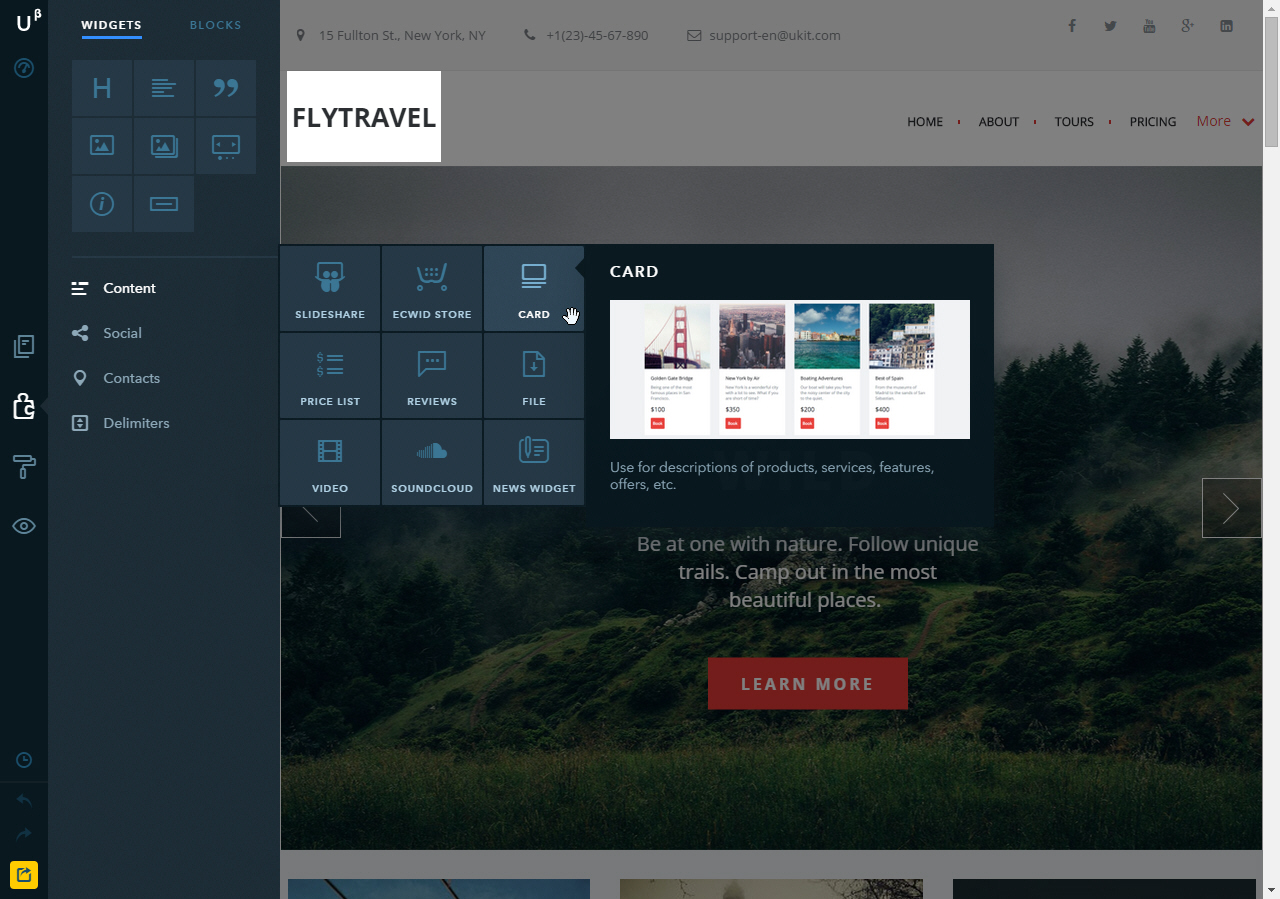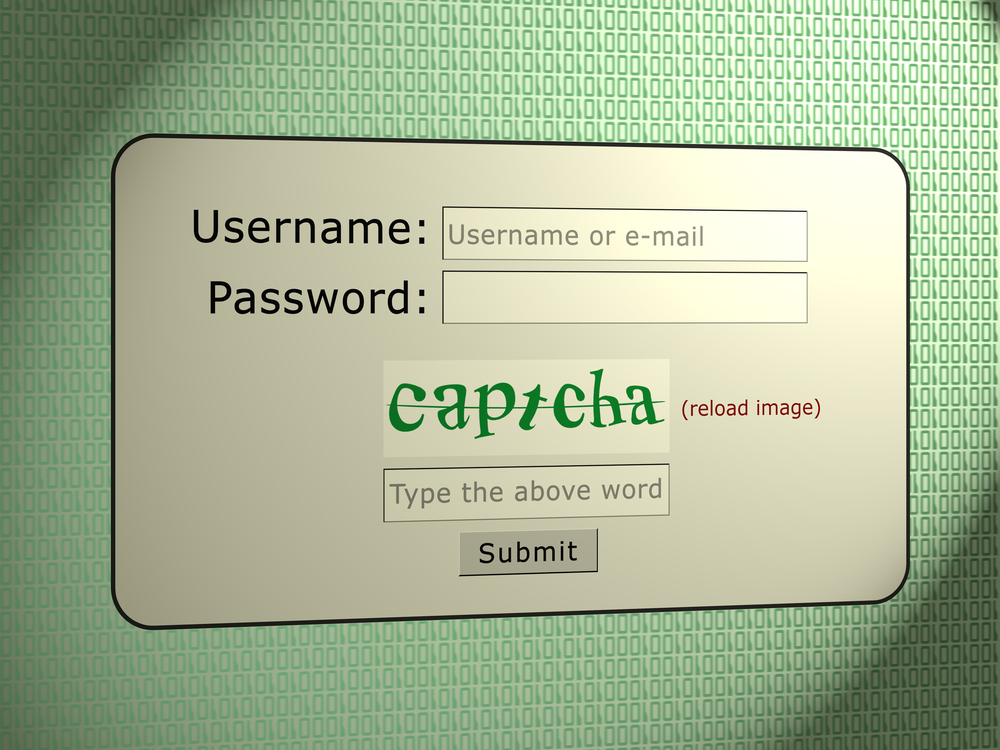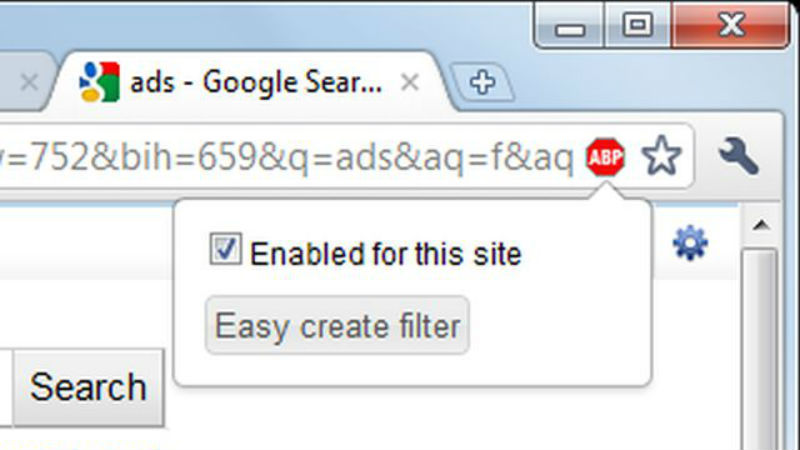
Making it easier for small businesses to create a professional online presence
It's becoming almost essential for businesses to have an online presence today, but for smaller companies or one-man operations employing a professional designer may be prohibitively expensive and basic template-based design tools don't always produce quality results.
Russian website specialist uCoz is about to make life easier for small businesses with the launch of the open beta of its new website creation platform, uKit.

Leaked document shows Europe would fight UK plans to block porn
Before the UK elections earlier in the month, David Cameron spoke about his desire to clean up the internet. Pulling -- as he is wont to do -- on parental heartstrings, he suggested that access to porn on computers and mobiles should be blocked by default unless users specifically requested access to it. This opt-in system was mentioned again in the run-up to the election as Secretary of State for Culture, Media and Sport, Sajid Javid assured peopled that the party "will age restrict online porn".
But it's not quite that simple. There is the small problem of Europe. A leaked EU Council document shows that plans are afoot to stop Cameron's plans in its tracks -- and with the UK on the verge of trying to debate a better deal for itself within Europe, the Prime Minister is not in a particularly strong position for negotiating on the issue.

Event management platform adds website builder
Earlier this year we reported on the launch of the Bizzabo platform designed to make life easier for people who manage events.
Now Bizzabo is extending its offering to include a website builder aimed specifically at event planners, giving them the ability to build a custom event website within minutes, with no prior coding or design experience required.

ImmuniWeb takes a fresh approach to detecting website vulnerability
As apps and commerce increasingly move online they provide a tempting target for hackers. It's important that websites are properly tested for vulnerabilities but this can be a time consuming process and many smaller organizations lack the resources and expertise to do it themselves.
High-Tech Bridge's ImmuniWeb offers a fresh approach to website vulnerability assessment. It uses a hybrid approach combining automated testing with the skills of security professionals.

Apache -- 20 years of the world's favorite web server
In 1995 a group of just 21 web masters got together to develop some server software. They became the Apache Group and today the project they started powers over 500 million websites, around half the internet.
Open source software specialist Lucidworks has produced an infographic that looks at the history of Apache and how it has succeeded by becoming a collaborative, consensus-based development process with an open and pragmatic software license.

30 years of dotcom -- what became of the first 100 domains?
Sunday marked the 30th anniversary of the first ever 'dotcom' domain being registered. Symbolics.com (originally a homepage for computer programmers) was the first ever dotcom, followed a month later by Bbn.com (an American high-technology company) and then another month later by Think.com (a supercomputer manufacturer).
There aren’t many big tech names in the top ten (with the exception of Xerox and HP at 7 and 9 respectively) and despite its reputation as being an innovator, Apple didn’t register a domain until February 1997, making it the 64th oldest dotcom. There are now approximately 275,000,000 dotcom domains in existence.

Website CAPTCHAs are a big turn off for users
We're all familiar with CAPTCHAs, those images you have to retype as text to prove that you're a real person and not a bot. The bad news for businesses that use CAPTCHA on their sites is that it seems they're pretty effective at deterring humans too.
New research from bot detection specialists Distil Networks suggests that CAPTCHA use is bad for business as it makes surfers more likely to abandon a page.

New solution makes online payments simpler for small businesses
Being able to do business online is almost essential these days, but for smaller companies the mechanisms needed to accept payments can prove complex and expensive.
Specialist in web client engagement software for small businesses vCita is making things simpler with the launch of its new, seamless online payment solution for service-based small businesses.

Machine learning speeds up web application load times
The increase in web application use means that we're loading more code than ever into our browsers. According to httparchive, the amount of JavaScript used by the top 100 websites has almost tripled in the last three years whilst HTML has almost doubled. This has performance implications because larger page-sizes mean end users have to wait significantly longer for web pages to load.
California-based cloud delivery service Instart Logic is hoping to improve things with the launch of SmartSequence, a new technology that employs machine learning to optimize how HTML and JavaScript code is loaded in browsers.

Web app self-service reduces support queries and cuts costs
Last year we looked at how supplier of point-and-click answer technology AnswerDash was integrating its software with the Zendesk help centre system.
Now the company has released performance stats from its customers which show that self-service technology can cut support costs by an average of $20k a year.

Self service platform helps cut online help desk requests
Ask anyone who has worked on a help desk and they'll tell you that a lot of their time is spent on solving the same problems.
In order to reduce the help desk workload for online businesses and allow users to solve straightforward issues themselves, contextual answer specialist AnswerDash has announced the integration of its technology with Zendesk.

Ad blockers under threat from Google, Microsoft and others
Several internet giants and media publishers, (Google, Microsoft and Le Figaro newspaper included), are threatening legal actions against the developers of software that blocks ads from reaching consumers.
This is, obviously, a problem for websites that rely on advertising as the web becomes more and more popular.

HERE online gets new features, Windows Phone apps receive update
What is Nokia doing after ditching phone-making? The Finnish company is focusing its efforts on more lucrative endeavors, like HERE. Even though nowadays the brand is mostly associated with Windows Phone, Nokia also brought its well-known mapping software to Android and ramped up its efforts to make the web version more attractive as well.
The result of the company's work to improve the online version of HERE is said to be "a better, faster and stronger here.com", which packs some interesting, value-adding new features. However, there is also something in store (no pun intended) for Windows Phone users, in the form of an update which is available for HERE apps on the platform.

Usability survey reveals the most frustrating websites
We've all encountered websites that are badly designed or seem to be willfully hard to use and now a new survey reveals the sites which cause the most frustration and are likely to be rapidly abandoned.
Website FAQ technology provider AnswerDash has released the results of its first website survey revealing Comcast.com, IRS.gov and CenturyLink.com as this year's most frustrating websites for US consumers.

Like Chinese food? Like the internet? Panda Express online ordering will blow your mind!
A home-cooked meal is great, as it is often healthier than getting take-out or visiting a restaurant. While it is not impossible to eat healthy away from home, it can be difficult. Chinese food is typically very bad for you; the sauces can be high in fats and sugars and many things are deep fried. However, I find these types of restaurants the best for healthy eating too. For instance, where else can you get steamed tofu with vegetables and brown rice? Certainly not Taco Bell or McDonalds.
Unfortunately, many local Chinese restaurants do not take credit cards, and when they do, they have minimum dollar amounts for usage (often $10 minimum). Sometimes, language barriers can make ordering over the phone problematic, leading to incorrect orders due to misunderstandings. Today, Chinese food chain Panda Express is taking the pain out of ordering Chinese food with all-new online ordering.
